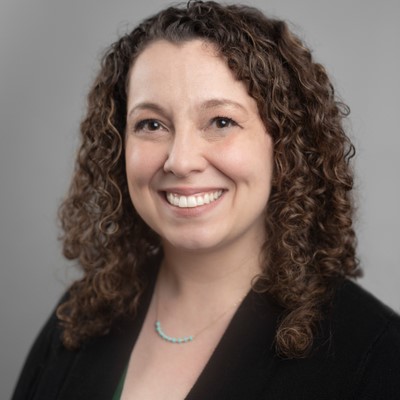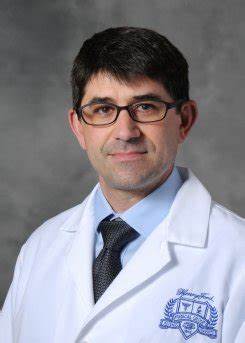Spring 2023 Seminars

THURSDAY, JANUARY 26 2023 | 3:30 p.m C102 Patenge, Zoom
This seminar will not be recorded
Nicole Talge, PhD
Associate Professor of Epidemiology and Biostatistics
Department of Epidemiology and Biostatistics
Michigan State University
"Auditory Brainstem Responses and ASD: Progress and Future Directions"
Interventions can help children with autism achieve developmental milestones and support their participation in family, school, and community activities. Age at enrollment is also a powerful predictor of intervention efficacy. However, at present, behavioral-level symptoms do not reliably identify ASD risk prior to 12 months of age. This is well after the brain-based alterations thought to underlie the disorder are underway. Although much effort has been devoted to identifying biomarkers that predict ASD diagnosis before behavioral symptoms emerge (e.g., genetic, metabolic, immune), few data directly evaluate the prevailing etiologic hypothesis for the disorder -- namely, that ASD reflects brain-based alterations originating in the pre- or early postnatal period. As a result, brain-based biomarkers – particularly those that can be assessed during early infancy -- hold unique potential in advancing our understanding of the disorder and promoting equitable access to timely interventions. To this end, auditory brainstem responses (ABRs) may be a biomarker worth further consideration. This presentation will describe historical and contemporary studies linking ABRs to ASD along with outstanding knowledge gaps that will drive future work in this field.

THURSDAY, FEBRUARY 9, 2023 | 3:30 p.m. Zoom
Albert Levin, PhD
Director, Center for Bioinformatics
Henry Ford Health Center
"Digital pathology enhanced prostate cancer recurrence risk prediction in African Americans"
Prostate cancer is a disease with a broad spectrum of aggressiveness. While modest progress has been made in the treatment of the aggressive forms of prostate cancer and refined active surveillance protocols have been adapted to better manage more indolent forms, it remains challenging to provide guidance for those at intermediate risk of recurrence. This is especially true for African American men who suffer a higher burden of prostate cancer risk and mortality. In this presentation, I will describe a convolution neural network digital pathologic approach to quantify prostate cancer Gleason patterns that enhances recurrence risk prediction for African American men at intermediate risk of recurrence beyond existing clincopathologic recurrence risk models. This work is based on a Henry Ford Health (HFH) retrospective cohort (1999-2012) of African American prostate cancer patients who elected radical prostatectomy as a first line therapy. The cohort has extensive follow-up and biospecimens such as expert pathologist annotated histopathologic slides, upon which this digital pathologic application is based. This study also demonstrates the extensive data resources available within HFH and the efforts of an existing multi-disciplinary genitourinary research group to leverage it.

THURSDAY, FEBRUARY 23, 2023 | 3:30 p.m. Zoom
Deborah Ellis, PhD
Wayne State University
Professor
Family Medicine and Public Health Sciences
"Bench To Bedside to Community: Developing Effective Behavioral Interventions for Health Promotion"
Behavioral scientists have historically lacked established pathways for translating critical basic science behavioral health discoveries into interventions ready for testing in T3 and T4 efficacy/ effectiveness trials. The presentation focuses on using the ORBIT model as a strategy for translating fundamental findings in behavioral science through the continuum from early-stage feasibility trials (T1) to multi-center implementation science protocols (T4). Work to develop an eHealth intervention to promote optimal diabetes health among Black youth with T1 diabetes will be discussed as an exemplar.

THURSDAY, MARCH 23 2023 | 3:30 p.m. E111 Fee Hall, Zoom
Richard Doty, PhD
Professor of Psychology
Otorhinolaryngology: Head and Neck Surgery
Penn Medicine
“The Science of Taste and Smell: Clinical Implications”
Smell loss and possibly taste loss appear to be markers for overall brain health. Indeed, older persons with smell loss are much more likely to die over a 6-year period than their peers with normal smell function. In this talk, an overview of the epidemiology, anatomy, and physiology of the senses and taste and smell will be presented. Procedures for quantitatively assessing their function will be reviewed. Examples of disorders with chemosensory dysfunction will be presented, including virus-related diseases such as COVID-19 and such neurological diseases as Alzheimer’s and Parkinson’s. A number of theories as to the underlying causes of such dysfunction will be explored.
THURSDAY, APRIL 13 2023 | 3:30 p.m. Interdisciplinary Science & Technology Building (ISTB), 1st Floor 766 Service Rd | Zoom
Gina Lovasi, PHD, MPH
Drexel University
Urban Health Collaborative
Dornsife Associate Professor of Urban Health
Philadelphia, PA
Jointly hosted with Michigan State University Department of Geography, Environment & Spatial Sciences.
"When does increasing built environment amenities benefit health?"
The evidence longitudinally linking food retail establishments, walkable neighborhoods, and urban greenspaces to health across the life course is mixed. Yet such built environment changes and related policy initiatives have been posited to have a role in reducing chronic disease risk factors. Whether considering natural experiments or observational designs such as cohort studies with geographic linkage, greater coherence across the literature may require renewed attention to effect modifiers that can undermine or amplify health benefits. In particular, the process of built environment change may generate resident concerns about belonging and displacement or augment resident social capital and activate use of public spaces. We discuss future research directions to explore such effect modifications, including the possibility of formal experiments that juxtapose community-led versus top-down built environment change.

